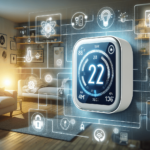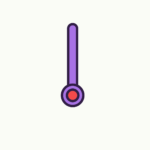Imagine a world where your home anticipates your needs, adjusts its settings accordingly, and even helps you save money in the long run. This is the promise of a smart home. By integrating advanced technology and automation into our living spaces, we can unlock a range of potential long-term cost savings. From reducing energy consumption to optimizing household expenses, the benefits of a smart home are not just limited to convenience and comfort. In this article, we will delve into the exciting possibilities that lie ahead, as we explore the potential long-term cost savings of embracing this innovative way of living.
Reduced Energy Consumption
Energy-efficient appliances and devices
One of the major cost-saving benefits of a smart home is the reduced energy consumption achieved through the use of energy-efficient appliances and devices. Smart home technology allows you to monitor and control the energy usage of various devices and appliances remotely, ensuring that they are not left on unnecessarily. By using energy-efficient appliances and devices, you can significantly minimize your electricity bills over time.
Automated energy management
With the automated energy management capabilities of a smart home, you can easily optimize your energy usage. Smart home systems can automatically adjust lighting, temperature, and other energy-consuming devices based on occupancy sensors, schedules, and even weather conditions. This means that energy is only utilized when needed, resulting in substantial energy savings and reduced utility bills.
Real-time monitoring and optimization
One of the key advantages of a smart home is the ability to monitor your energy consumption in real time. Smart energy monitoring systems provide feedback on your energy usage, allowing you to identify areas where you can make improvements to minimize wastage and reduce costs. Additionally, these systems can provide insights and recommendations on how to optimize your energy consumption, further enhancing your ability to save money in the long run.
Smart thermostats and climate control
Smart thermostats are a game-changer when it comes to energy efficiency and cost savings. These devices allow you to remotely control and schedule your home’s heating and cooling systems, ensuring that energy is used only when necessary. With features such as geofencing, where the thermostat adjusts the temperature based on your location, you can save energy and money by not unnecessarily heating or cooling your home when you’re not there. These smart thermostats also provide valuable insights into your energy usage, helping you identify potential areas for conservation.
Lower Utility Bills
Optimized energy usage
By utilizing a smart home system, you can optimize your energy usage to reduce utility bills. Through the integration of various smart devices and appliances, you can create custom schedules and automation routines to avoid unnecessary energy consumption. For example, smart plugs can be programmed to turn off devices such as TVs and gaming consoles when not in use, reducing standby power usage and subsequently lowering your electricity bills.
Demand response programs
Many utility companies offer demand response programs that incentivize homeowners to reduce their energy consumption during peak demand periods. Smart homes are ideally suited for participating in these programs, as you can easily adjust your energy usage remotely or even allow your smart home system to automatically respond to signals from the utility company. By participating in demand response programs, you can not only contribute to a more stable energy grid but also enjoy potential financial incentives or lower electricity rates.
Variable pricing advantages
Smart homes enable you to take advantage of variable pricing models offered by some utility companies. These models offer different electricity rates based on the time of day or season, allowing you to shift your energy-consuming activities to lower-cost periods. By utilizing smart home automation, you can schedule tasks such as laundry or charging electric vehicles during off-peak hours, effectively reducing your overall utility expenses.
Remote control and scheduling
Through smart home technology, you have the ability to remotely control and schedule various appliances and systems in your home. This means you can adjust your thermostat, turn off lights, or even start your dishwasher while away from home. By taking advantage of remote control features, you can ensure that devices are only operating when needed, resulting in lower utility bills and a more energy-efficient household.

Water Conservation
Smart irrigation systems
Smart irrigation systems are a significant contributor to water conservation and cost savings in a smart home. These systems use moisture sensors and weather data to optimize watering schedules and reduce unnecessary irrigation. By ensuring that your lawn and plants receive the right amount of water at the right time, you can minimize water waste and lower your water bills.
Leak detection and prevention
Water leaks can lead to significant water wastage and costly bills. Smart homes integrate leak detection sensors that can quickly identify leaks and send alerts to homeowners. Some systems even have the capability to automatically shut off the main water supply when a leak is detected. By promptly addressing leaks and preventing water damage, you can avoid expensive repairs and save on your water bill.
Real-time water usage monitoring
With smart home technology, you can monitor your water usage in real-time. This allows you to keep track of how much water you are consuming and identify any patterns of high usage. By being more aware of your water consumption habits, you can make informed decisions on how to reduce water waste and ultimately lower your water bills.
Automated water management
Smart home systems enable automated water management through the integration of smart devices and technologies. For instance, smart showers can regulate water flow and temperature, ensuring that water is not wasted. In addition, smart faucets equipped with motion sensors can automatically turn off when not in use, preventing unnecessary water wastage. By implementing automated water management solutions, you can make significant strides in conserving water and reducing your water bills.
Decreased Insurance Costs
Reduced risk of accidents and damages
A smart home with its advanced features and technology can greatly reduce the risk of accidents and damages, ultimately leading to decreased insurance costs. Smart devices such as smoke detectors, carbon monoxide detectors, and water leak sensors can provide timely alerts and notifications in case of emergencies, allowing homeowners to take immediate action. By preventing or minimizing potential damages, insurance claims can be avoided, leading to lower insurance premiums.
Enhanced home security measures
A key benefit of a smart home is the enhanced home security measures it provides. With features like smart locks, security cameras, and motion sensors, you can remotely monitor and control access to your home, all from the convenience of your smartphone. These security measures act as deterrents against burglaries and increase the safety of your home, which can result in reduced insurance premiums.
Fire and smoke detection systems
Integrating fire and smoke detection systems into a smart home not only ensures the safety of your family but can also lead to lower insurance costs. Smart smoke detectors can alert you of potential fires, and some models even have the capability to automatically contact emergency services. By having these systems in place, you can respond promptly to emergencies and reduce the likelihood of substantial fire-related damages, thereby potentially decreasing your insurance premiums.
Improved safety features
Smart homes offer a range of improved safety features that can reduce the risk of accidents and injuries, leading to lower insurance costs. For instance, smart lighting systems can be programmed to automatically turn on when motion is detected, reducing the likelihood of tripping or falling in the dark. Additionally, smart home automation systems enable you to remotely control and monitor your home, allowing you to ensure that appliances and systems are functioning properly and minimizing the risk of accidents.

Longer Lifespan of Appliances
Smart diagnostics and maintenance
Smart home systems often come equipped with smart diagnostics and maintenance features that can help prolong the lifespan of your appliances. These systems can actively monitor the performance and condition of various appliances and promptly detect any issues or malfunctions. By alerting you to potential problems, smart diagnostics enable timely maintenance and repair, preventing small issues from turning into major breakdowns and extending the lifespan of your appliances.
Optimized usage patterns
Through the utilization of smart home technology, you can optimize the usage patterns of your appliances. Smart thermostats, for example, can learn your temperature preferences and adjust heating and cooling accordingly, reducing unnecessary strain on your HVAC system. By ensuring that your appliances are used efficiently and not overworked, you can prolong their lifespan and avoid the need for premature replacement.
Timely notifications for maintenance
One of the advantages of smart home systems is the ability to receive timely notifications for appliance maintenance. Whether it’s a reminder to change the air filter in your HVAC system or a notification for cleaning out the lint trap in your dryer, these reminders ensure that appliances are properly maintained. By following these maintenance notifications, you can keep your appliances running smoothly, enhance their performance, and extend their lifespan.
Prevention of overheating and malfunctions
Smart home technology provides the ability to monitor and control the temperature and power usage of appliances, reducing the chances of overheating and malfunctions. For example, smart power strips can cut off power to devices when they are not in use or when a set power threshold is exceeded, preventing excessive heat buildup. By proactively preventing overheating and malfunctions, you can avoid costly repairs or replacements and enjoy prolonged use of your appliances.
Lower Repair and Replacement Expenses
Predictive maintenance alerts
Smart home systems can provide predictive maintenance alerts, notifying you when an appliance or system is at risk of malfunction or failure. By analyzing data collected from various sensors and devices, these systems can identify patterns and anomalies that suggest potential issues. By addressing these issues proactively, you can minimize repair costs and avoid sudden breakdowns that may require expensive emergency repairs.
Timely identification of issues
Smart home technology enables timely identification of issues in appliances and systems. For example, if a refrigerator is not maintaining the right temperature, a smart home system can send an alert, prompting you to investigate and resolve the issue. By identifying problems early on, you can potentially resolve them with simple adjustments or minor repairs, avoiding the need for costly replacements or extensive repairs down the line.
Prevention of major breakdowns
By leveraging the capabilities of a smart home system, you can actively prevent major breakdowns in appliances and systems. Through real-time monitoring and data analysis, smart home technology can identify signs of deterioration or abnormal behavior. With timely interventions and repairs, you can address these issues before they escalate into significant breakdowns, saving you from costly repairs or replacement of appliances.
Efficient troubleshooting and support
Smart home systems often come with troubleshooting and support features that can help you quickly identify and resolve issues with your appliances. These features can range from detailed error messages displayed on smart devices to guided step-by-step instructions for troubleshooting common problems. By having access to these resources, you can avoid the need for expensive professional repairs and resolve issues on your own, saving both time and money.

Conserved Resources and Reduced Waste
Automated waste management
Smart home technology can significantly contribute to automated waste management, leading to both cost savings and reduced environmental impact. For example, smart trash cans equipped with sensors can send notifications when they are full or need emptying, optimizing waste collection schedules and eliminating unnecessary pickups. This allows for more efficient waste management, reducing the cost of waste disposal services and minimizing the environmental impact associated with excessive waste collection.
Smart recycling solutions
Smart homes can also aid in the implementation of effective recycling practices. Intelligent recycling systems can sort and separate recyclable materials, making the recycling process more convenient and efficient. By promoting recycling and reducing the amount of waste sent to landfills, smart recycling solutions help conserve resources and mitigate environmental damage, leading to long-term cost savings and a healthier planet.
Efficient use of resources
By integrating various smart devices and systems, a smart home enables more efficient use of resources. For instance, smart lighting systems can automatically adjust brightness and turn off when no one is in a room, reducing energy waste. Water-saving features in smart faucets and showers can help minimize water consumption. By optimizing the use of resources, a smart home not only reduces utility bills but also promotes sustainable living.
Reduced environmental impact
One of the long-term cost savings of a smart home is the reduced environmental impact. By actively conserving resources, minimizing waste, and optimizing energy usage, smart homes contribute to a greener and more sustainable future. Lowering energy consumption, reducing water waste, and implementing eco-friendly practices not only save money but also help protect the environment for future generations.
Increased Home Value
Desirable features for potential buyers
Smart home features are increasingly becoming desirable for potential homebuyers. The convenience, energy efficiency, and enhanced security offered by smart home technology are attractive selling points in today’s real estate market. By investing in a smart home now, you not only enjoy the benefits of cost savings but also increase the appeal and value of your property if you decide to sell in the future.
Improved market competitiveness
A smart home stands out in the market and can attract more potential buyers. As the demand for smart home technology grows, properties equipped with smart features have a competitive edge over traditional homes. Due to the added convenience and energy-saving benefits, smart homes are more likely to appeal to buyers looking for advanced and sustainable living solutions.
Enhanced home appraisal value
Appraisers often consider smart home features when evaluating the value of a property. The increased functionality, energy efficiency, and security that smart homes offer can positively impact the overall appraisal value. By investing in smart home technology, homeowners can potentially receive a higher appraisal value, providing a long-term return on investment.
Future-proof investments
Investing in a smart home is a future-proof decision. As technology continues to advance, smart homes are likely to become even more widespread and sought after. By incorporating smart features into your home, you are making a forward-thinking investment that ensures your property remains attractive and relevant in the long term. As the demand for smart homes increases, so does the potential for a higher resale value.

Remote Monitoring and Maintenance
Real-time security surveillance
One of the benefits of a smart home is the ability to remotely monitor your property’s security. Through security cameras and smart locks, you can keep an eye on your home from anywhere and receive real-time alerts if any suspicious activity is detected. Remote security surveillance not only provides peace of mind but also saves costs by reducing the need for expensive security systems or personnel.
Remote troubleshooting and repairs
Smart homes enable remote troubleshooting and repairs for various appliances and systems. With the ability to remotely access and control devices, homeowners can troubleshoot minor issues without needing to call for professional assistance. This not only saves time and inconvenience but also eliminates the need for costly service calls, reducing repair expenses in the long run.
Alerts for potential issues
Smart home systems send alerts for potential issues, allowing you to take timely action. For example, if a smart thermostat detects an HVAC system malfunction, it can send a notification to your smartphone, prompting you to address the problem before it becomes more severe. By receiving alerts for potential issues, you can avoid costly breakdowns and repairs, ultimately saving money.
Reduced reliance on expensive professional services
Smart home technology can reduce the need for costly professional services by enabling homeowners to handle various tasks remotely. Features like self-monitoring security systems, remote access to appliances, and self-diagnostic tools for troubleshooting help minimize the need for professional intervention. By reducing reliance on expensive professional services, smart homes offer substantial cost savings over time.
Enhanced Lifestyle and Comfort
Intelligent lighting and ambiance control
Smart home technology offers intelligent lighting control that can enhance the comfort and ambiance of your living spaces. With smart lighting systems, you can create personalized lighting scenes, adjusting brightness, color, and even timing to suit your preferences. This not only improves the overall aesthetics of your home but also contributes to energy savings by ensuring lights are only on when needed.
Automated entertainment systems
Smart homes provide automated entertainment systems that offer a seamless and convenient experience. With systems like voice-controlled speakers and smart TVs, you can easily control your entertainment devices with simple voice commands or through a smartphone app. By automating your entertainment systems, you can enjoy effortless control and convenience, enhancing your overall lifestyle.
Convenient voice-activated technology
Voice-activated technology is a hallmark of smart homes that adds convenience to your everyday life. With voice assistants like Amazon Alexa or Google Assistant integrated into your smart home system, you can perform various tasks hands-free. From turning on lights to adjusting the temperature, voice-activated technology simplifies the way you interact with your home, making your life easier and more comfortable.
Personalized settings and preferences
Smart home technology allows you to personalize your home settings and preferences according to your lifestyle. From customized temperature settings to tailored lighting scenes, smart homes adapt to your needs and preferences. By creating a personalized environment that suits your comfort and convenience, you can enjoy an enhanced lifestyle that positively impacts your wellbeing.
In conclusion, the potential long-term cost savings of a smart home are significant. By reducing energy consumption, lowering utility bills, conserving water resources, and implementing efficient maintenance practices, smart homes offer a range of financial benefits. Additionally, the enhanced safety, increased home value, remote monitoring capabilities, and improved lifestyle and comfort further contribute to the long-term value of a smart home investment. By embracing smart home technology, you can enjoy substantial cost savings while enjoying the many conveniences and advantages that come with it.











